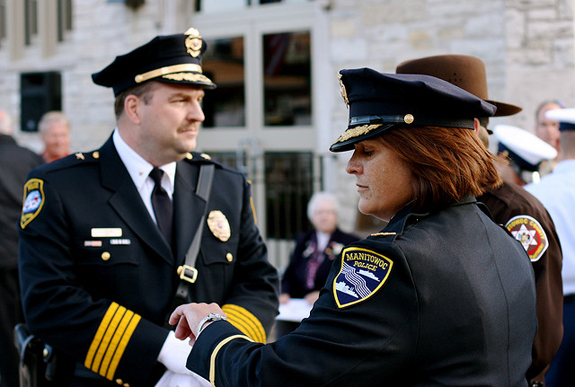The role of local police in immigration enforcement continues to be a complex policy and legislative issue at both the state and federal level. State legislatures, for example, are contemplating bills designed to increase the role of local police in immigration enforcement while federal legislation targets cities with so-called “sanctuary policies.” And as programs like 287(g), Secure Communities and other federal/local partnerships continue to expand, local police are now more involved in identifying undocumented immigrants than ever before. Many law enforcement officers, however, find that enforcing federal immigration law may interfere with their ability to prevent crime and keep neighborhoods safe, so they have designed tailored local policies to ensure that they maintain the best possible relationship with their communities. In a new report by the Police Executive Research Forum (PERF), local police speak out on the difficulties of enforcing immigration laws and talk about best practices for navigating immigration issues in the future.
In Police and Immigration: How Chiefs are Leading their Communities through the Challenge, PERF looks at several case studies (New Haven, CT; Prince William County, VA; Montgomery County, MD; Minneapolis, MN; and various law enforcement agencies in Phoenix, AZ) to show how police efforts to engage with immigrant communities makes cities safer.
Each of these cities works with ICE in one way or another to aid in immigration enforcement. However, these cities have worked with local police on policies regarding the way police enforce federal immigration laws, i.e. when police officers can question arrestees about immigration status, when cops contact ICE, and how witnesses and victims of crime are treated. While each of the policies is different, each one was developed over time with input from various stakeholders and was custom-made to serve the best interests of the local community.
However, federal, state, and local policymakers continue to impose policies and responsibilities on local police without getting their input. In the interest of looking tough on illegal immigration, some policymakers continue to claim that these localities are giving “sanctuary” to unauthorized immigrants and to criminals, and seek to undermine all of the hard work and thought put into designing their community policing policies.
At the same time, ICE continues to expand the Secure Communities program, forcing local police to send fingerprints to DHS to be matched against immigration databases. When there’s a hit, local jails are asked to hold those individuals that ICE is interested in, at the expense of local taxpayers. While the police aren’t deputized agents making arrests for immigration violations, the effect on the community can be the same—immigrants fearful of reporting crimes to the police, endangering everyone. DHS is not giving local police jurisdictions the ability to opt out of Secure Communities, even if the locality determines it is in its own best interest to do so.
PERF’s report offers many excellent recommendations for ensuring that federal agencies consult with state and local police as they craft immigration policies—not just impose something on them after the fact. They also recommend ICE increase coordination with and responsiveness to local police agencies and be more engaged and active in explaining their policies and actions to local communities. Furthermore, the role and authority of local police needs to be more clearly defined by the federal government.
As for the police, PERF recommends officers be prohibited from arresting or detaining persons just to investigate their immigration status. Police must uphold Constitutional and civil rights, and protect crime victims and witnesses regardless of their immigration status. Similar to their recommendations for ICE, local police must engage their communities in dialogue about their policies and programs, educate their communities about their authority and actions, and develop clear, written policies and procedures regarding the handling of unauthorized immigrants.
Enacting these recommendations would go a long way toward ensuring that police and policymakers are on the same page, and that the best interest of the entire community is front-and-center in the immigration debate.
Photo by Lester Public Library.
FILED UNDER: 287(g), undocumented immigration



